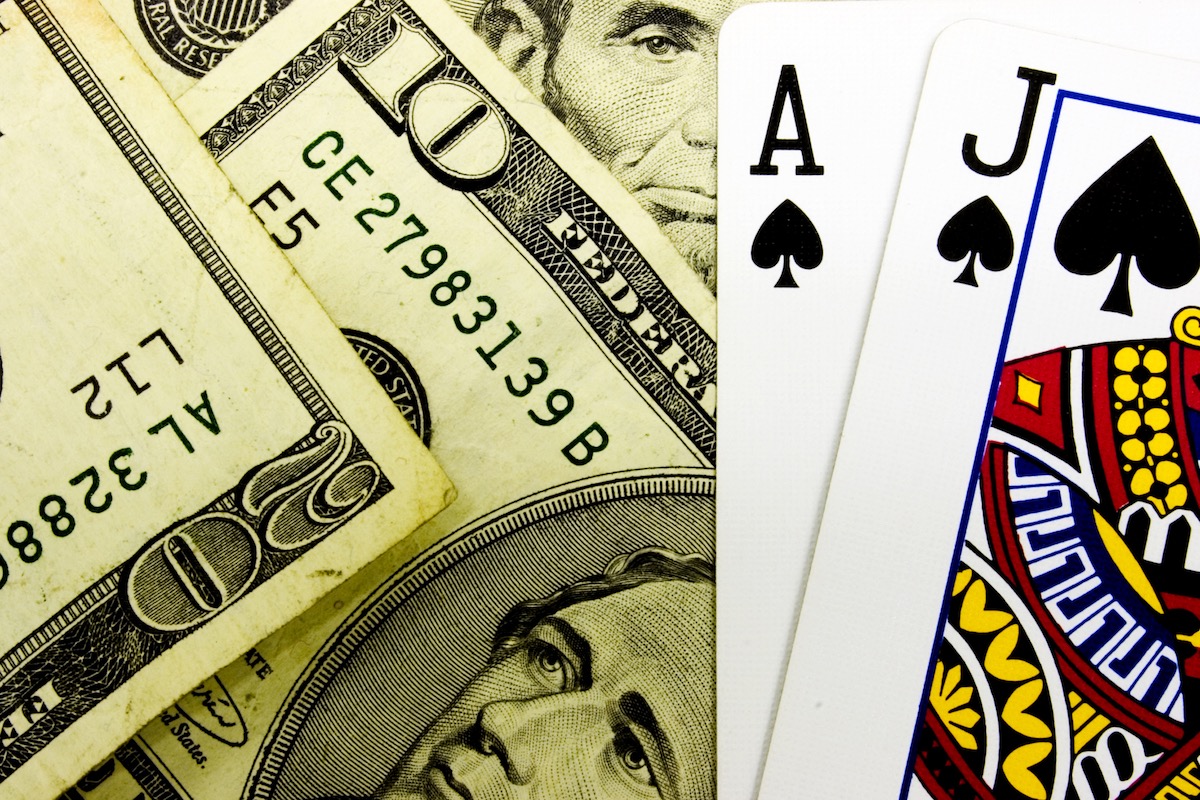Gambling and Sin Taxes ‘Unreliable’ Revenue Stream for States, Says Pew Report
Posted on: July 23, 2018, 05:00h.
Last updated on: July 24, 2018, 01:39h.
As lawmakers across America spend the idle summer months plotting bold, deficit-plugging gambling expansion bills for the 2019 legislative session, it may be wise to use the summer recess for some essential reading.

More states than ever before are likely to be debating gambling bills next year, thanks to the US Supreme Court’s decision to strike down PASPA, which means that state legislatures can consider regulating sports betting for the first time in 26 years.
Others may be considering whether to establish online lottery sales, or authorizing, expanding casinos, for example.
But a new study from the Pew Research Center suggests that the so-called “sin taxes” — which include tobacco, booze, marijuana, and gambling — are “unreliable” sources of income. And while legalized gambling might seem like a license to print money for certain lawmakers struggling to balance the books, it may be little more than a quick fix, with few long-term benefits, according to the report.
Degrees of Sinfulness
The bad news is that sin taxes make up a small percentage of state revenues — in Kansas its 3.3 percent, for example — although that increases with the varying degree of “sinfulness” of each state.
Nevada tops that bill at 14.8 percent — although few lawmakers will be pushing their legislation on the “let’s get iniquitous” ticket.
The good news is that gambling is the biggest earner of all sin taxes. In 2015, its share was over half, both nationwide and per adult, according to the study.
But Pew includes the caveat that lottery growth has plateaued nationwide. It also notes that casinos face greater competition as they proliferate from state to state. Once healthy casino revenue streams have become straitened, as neighboring states legalize casino gaming and directly target customers from across the border. Saturation ensues.
“Short-term budget fixes could turn into long-term structural imbalances, depending on where gambling revenue is directed,” warns Pew. “States should carefully assess the sustainability of these revenue sources in the long term, especially for funding ongoing budget commitments, to avoid structural budget challenges.”
The Takeaway for Sports Betting
The study also warns of pursuing emerging sin taxes, where markets are volatile and “forecasts rely on limited data” — a nod to legal marijuana and sports betting.
But the rush to adopt sports betting is largely down to states with established casino sectors attempting to preserve their competitiveness — or gaining a temporary edge — against those of their neighbors. And for a vertical with relatively small margins, few are looking at it as a silver bullet.
But sports betting, as a new vertical, is also less likely to cannibalize existing gambling operations. It has been estimated that $150 billion in bets are handled by the black market in the US every year. Regulation is about channeling that towards a licensed — and taxed — industry, which will be a small win for states that choose to regulate.
Related News Articles
Mobile Apps Lead to Huge Jump for Indiana Sports Betting Figures in October
BetMGM Gets an ‘F’ From Better Business Bureau
Most Popular
FTC: Casino Resort Fees Must Be Included in Upfront Hotel Rates
Genovese Capo Sentenced for Illegal Gambling on Long Island
NBA Referees Expose Sports Betting Abuse Following Steve Kerr Meltdown
UPDATE: Former Resorts World & MGM Grand Prez Loses Gaming License
Most Commented
-
UPDATE: Whiskey Pete’s Casino Near Las Vegas Closes
— December 20, 2024 — 30 Comments -
Caesars Virginia in Danville Now Accepting Hotel Room Reservations
— November 27, 2024 — 9 Comments -
UPDATE: Former Resorts World & MGM Grand Prez Loses Gaming License
— December 19, 2024 — 8 Comments -
FTC: Casino Resort Fees Must Be Included in Upfront Hotel Rates
— December 17, 2024 — 7 Comments
















No comments yet